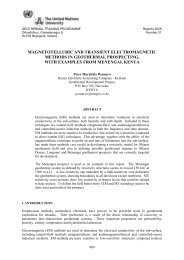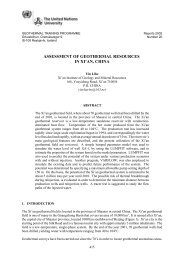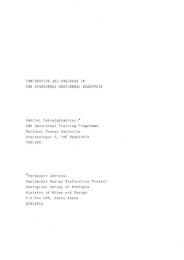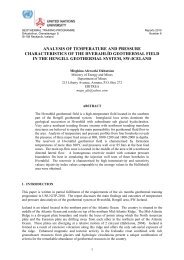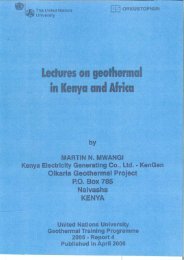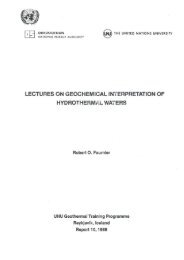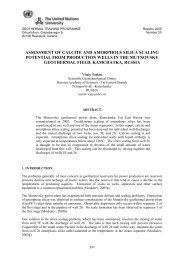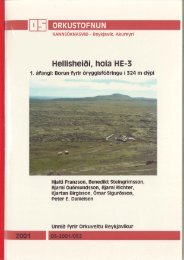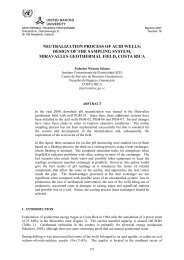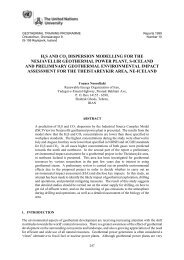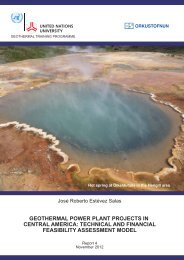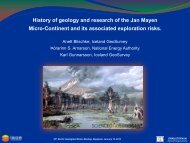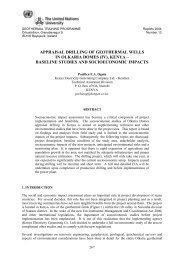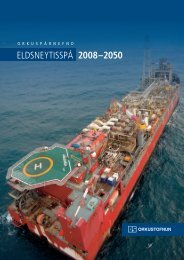ENERGY IN ICELAND - Orkustofnun
ENERGY IN ICELAND - Orkustofnun
ENERGY IN ICELAND - Orkustofnun
Create successful ePaper yourself
Turn your PDF publications into a flip-book with our unique Google optimized e-Paper software.
Iceland New Energyof these gases, such as the Kyoto protocol.About 71% of greenhouse gasemissions in Iceland are carbon dioxide(CO 2). By far the greatest sharethereof, about 70%, is due to theburning of fossil fuels. This showsthe significance of fossil fuel consumptionin relation to greenhousegas emissions. During the period1990–2003, Iceland’s total annualgreenhouse gas emissions decreasedfrom 3.3 million tons to 3.1 milliontons of CO 2equivalents annually, orby 6%. These figures do not includeemissions from the internationaltransport of goods and passengers, inA hydrogen bus from the ECTOS project.accordance with international rules,nor do they include figures falling underthe so-called Icelandic clause inthe Kyoto protocol, see Figure 15. The figure shows the relative share of CO 2equivalentemissions in Iceland in 2003.Alternative fuelsThe collection of methane from a waste yard started in 1997. In 2000, the productionof vehicle fuel from refining of the methane started. The methane collected is mostlyused to generate electricity, which in 2005 reached 4.2 GWh. The fuel producedamounted to 55,000 m 3 in 2005, and was used to power 46 small flexible fuel vehiclesplus 2 heavy-duty vehicles. In 2005, two public buses were added, and in 2006it is estimated that the amount of methane used as fuel for vehicles will increase 5 or6 fold with the addition of at least 10 small vehicles, and 2 heavy-duty vehicles.Three hydrogen buses have constituted a part of the public transport system forsome years, and hydrogen has been produced in one filling station. The internationaldemonstration project, ECTOS, led by Icelandic New Energy, was renewed in 2006, sothe buses will run until 2007.Iceland’s production of alternative fuels is expected to increase over the long term.Iceland is self-sufficient regarding electricity and heating, and becoming self-sufficientregarding fuel is economically as well as environmentally desirable.28



